Paradise // Rockets and Blue Lights – National Theatre, London
A review of Paradise and Rockets and Blue Lights, both currently on at the National Theatre. Adapted by Kae Tempest and featuring Lesley Sharp, Paradise is a mostly successful modern version of a work by Sophocles. While Rockets and Blue Lights is a layered story exploring the historic trauma of enslavement and its legacy in the present.
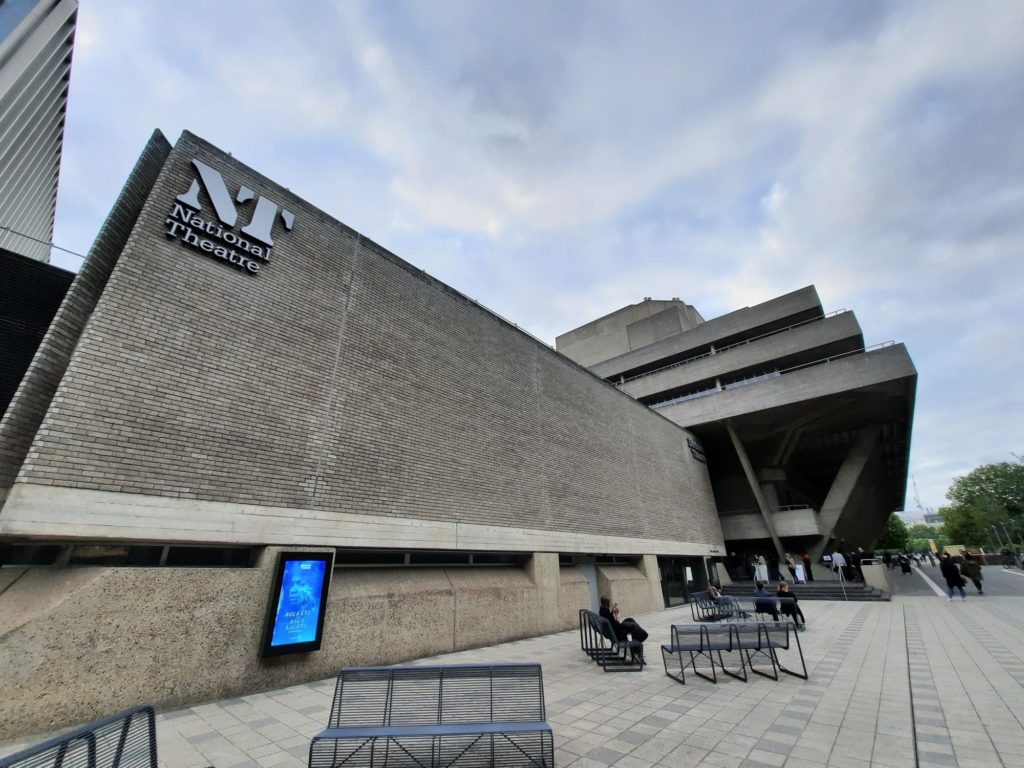
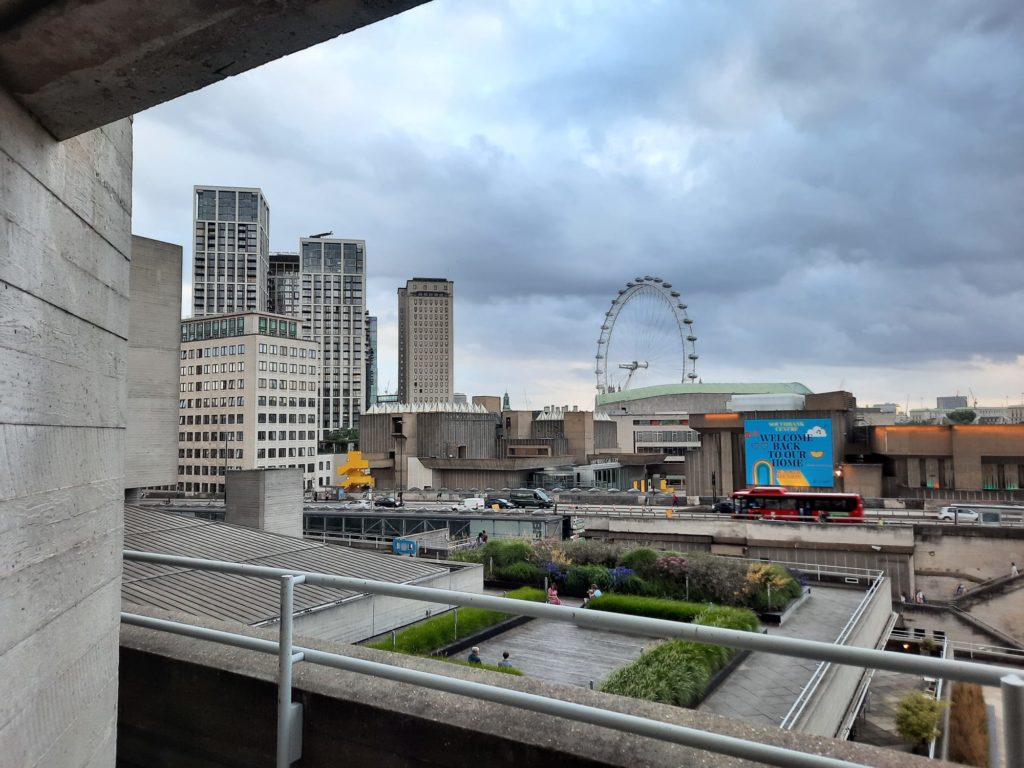
More Quality Theatre From The National
It’s not long since I wrote a double-bill review here on the blog, of After Life and Under Milk Wood, both staged at the National Theatre. Once again in recent weeks I found myself at the National twice in quick succession, so here I am taking the opportunity to compare and contrast another pairing of plays for you!
There were both similarities and differences. Like After Life and Under Milk Wood, Paradise is an adaptation. Not from film or a radio play this time, however. No, the original on which Kae Tempest has based their work is Philoctetes, a 2,500-year-old play by Sophocles.
Rockets and Blue Lights, on the other hand, is definitely new work. Winsome Pinnock has created a complex story about complex themes – enslavement, trauma, racism, guilt, and the art of JMW Turner thrown in to boot. For me this was the one that threw out bigger ideas, which was of course entirely the point.
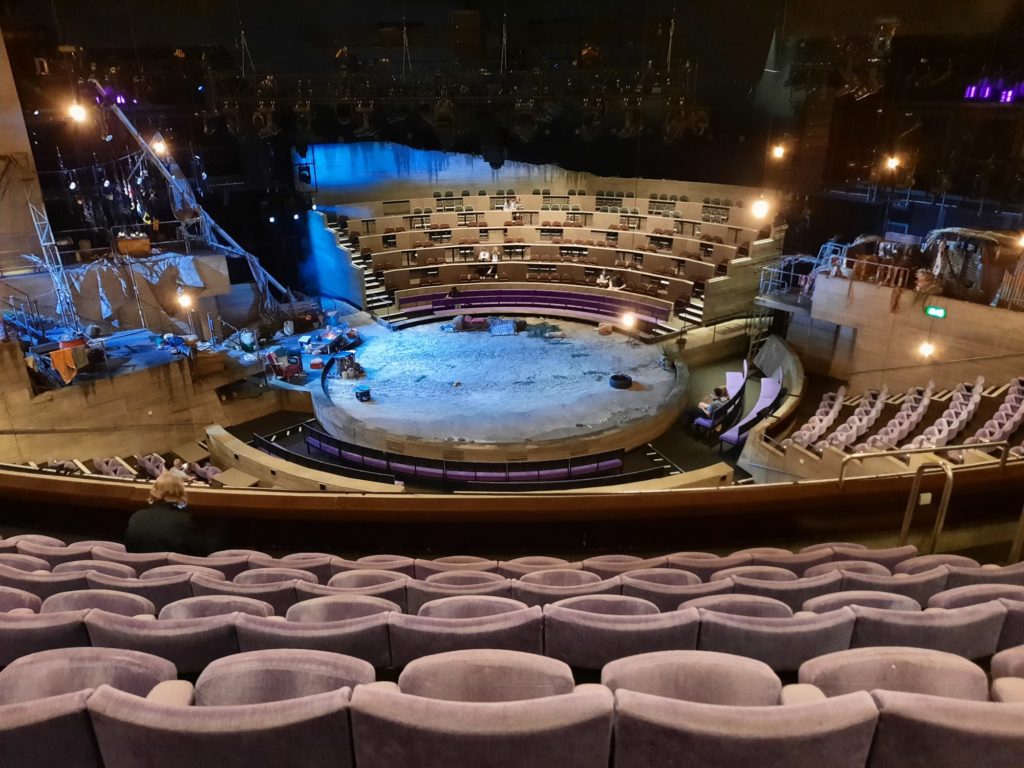
Paradise (LAST CHANCE TO SEE)
The story of Paradise is that of Philoctetes. A famed archer caught up in the Trojan War, Odysseus abandoned Philoctetes on an island due to an unpleasant wound which did not heal. Several years later a prophet says Philoctetes is needed for the war effort, so Odysseus takes Achilles’ son Neoptolemus to trick him into coming back.
This broad outline remains in Kae Tempest’s version, but they have otherwise changed things around. For one, all of the characters are played by women. What better way to underline the performative aspects of (militarised/macho) masculinity? The chorus are also very active in this version, inserting themselves frequently into the plot. For me the chorus also introduced an element of confusion, however. Tempest uses them to make clear their views on immigration and freedom of movement. But are they refugees of the war? Victims of a natural disaster? Why is there a last minute love story? I think with a bit of refining of this angle would have ensured the whole worked more seamlessly.
In terms of what I really liked about Paradise, the first thing was Rae Smith’s set design. It makes full use of the spaces around the Olivier’s barrel stage, and powerfully evokes the island paradise/hell hole in which Philoctetes has languished. The second was Lesley Sharp’s performance. Her cockney Philoctetes has a Mark Rylance magnetism and charisma which draws you in. The character’s struggle to trust young Neoptolemus (Gloria Obianyo) is powerful. The brash arrogance of Anastasia Hille’s Odysseus is an effective foil as the two reopen old wounds, so to speak.
I enjoyed Paradise – it took me a lot to go back to a full capacity audience, but this was worth it!
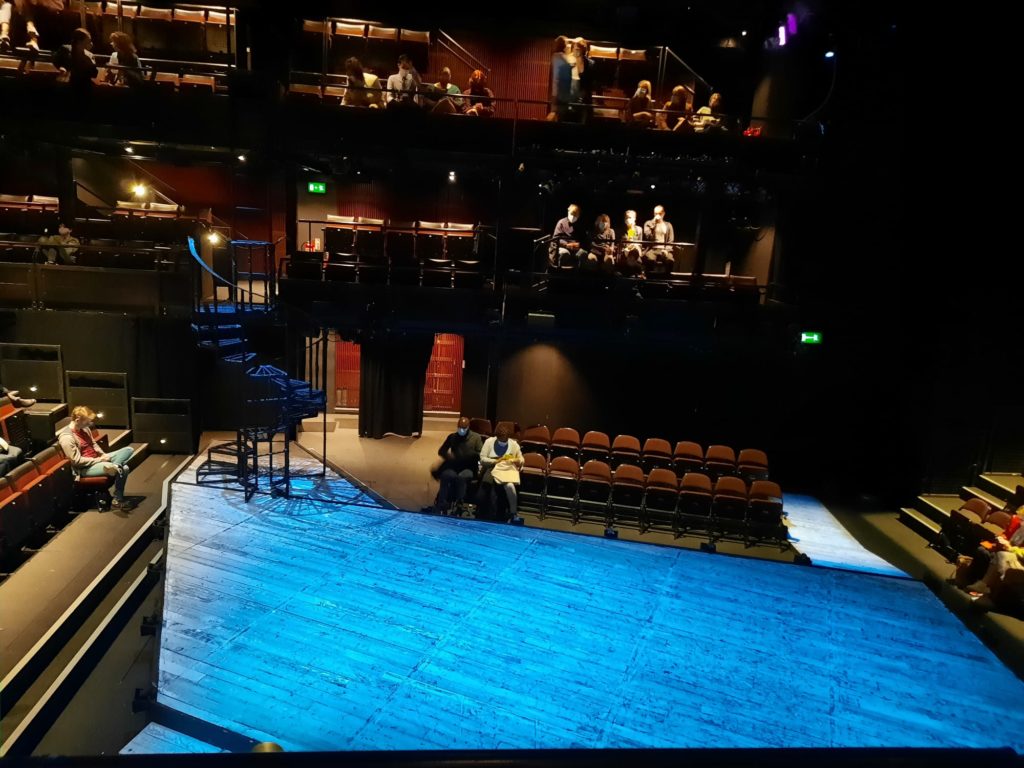
Rockets and Blue Lights
This was a very different kind of play. Or sort of a play within a play. Or a film within a play. In any event, it’s important for me to give a bit of background first. Joseph Mallord William Turner painted some works which were modern in their outlook, including opinions on enslavement (we learned about this here). This play references two specific Turner paintings: Slave Ship (Slavers Throwing Overboard the Dead and Dying, Typhoon Coming On), and Rockets and Blue Lights. The title of the first is sadly self-explanatory. The second refers to methods for warning ships – perhaps during a storm, perhaps alerting them that illegal activity (like carrying enslaved people after Abolition) had been spotted and would entail retaliatory action.
So this is a play about enslavement, and about Turner. The plot is reasonably complex – switching between the present day (the cast and crew of a film about Turner on a ship participating illegally in enslavement, with a focus on the lead actress and a chance encounter she has in a museum), and the past (scenes from the film within a play, or real glimpses into bygone times?). Actors play multiple roles, with Rochelle Rose and Anthony Aje as particular standouts.
During the interval, I overheard a conversation which got me thinking. There is quite a lot of work on stage right now which explores black trauma. It can be a fine line between bearing witness (as playwright Winsome Pinnock intends), and retraumatising (the experience of my neighbours in the audience). And when a character in Rockets and Blue Lights explains that the violence in Slave Ship is not pictured because it would let the viewer off too easy, let them feel their emotional response was some sort of atonement for terrible events, does that in some way apply to us as an audience, too? These are big questions which I don’t have answers to. But it just goes to show that this is a powerful and thought-provoking piece of theatre.
Paradise: 3/5
Rockets and Blue Lights: 3/5
Paradise on until 11 September 2021
Rockets and Blue Lights on until 9 October 2021
Keep up with what’s on in London’s theatres – sign up below:
If you see this after your page is loaded completely, leafletJS files are missing.

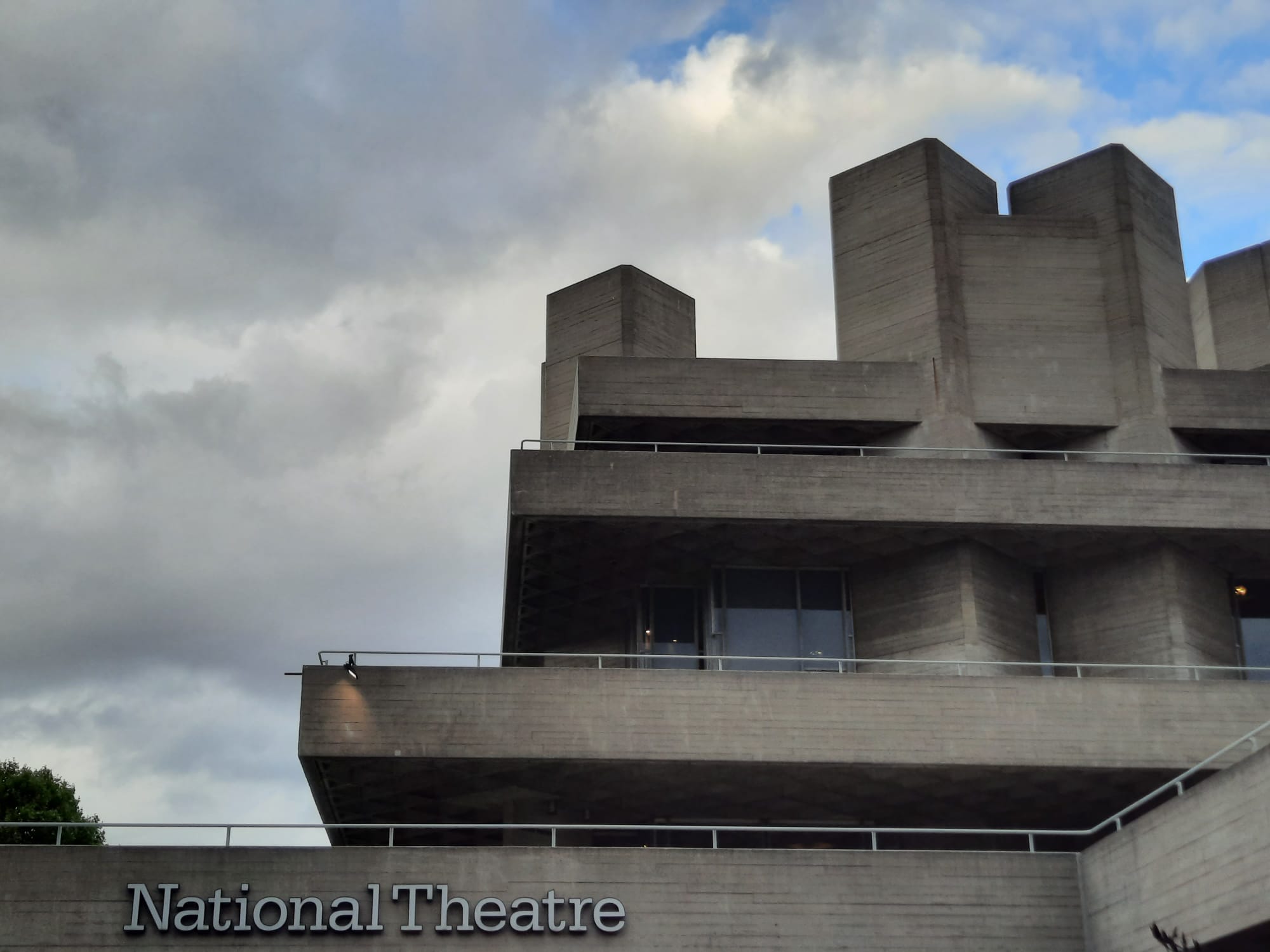
One thought on “Paradise // Rockets and Blue Lights – National Theatre, London”